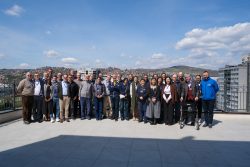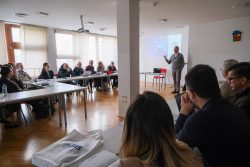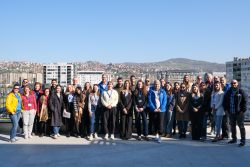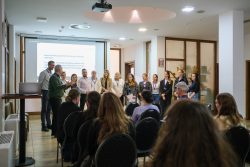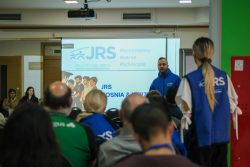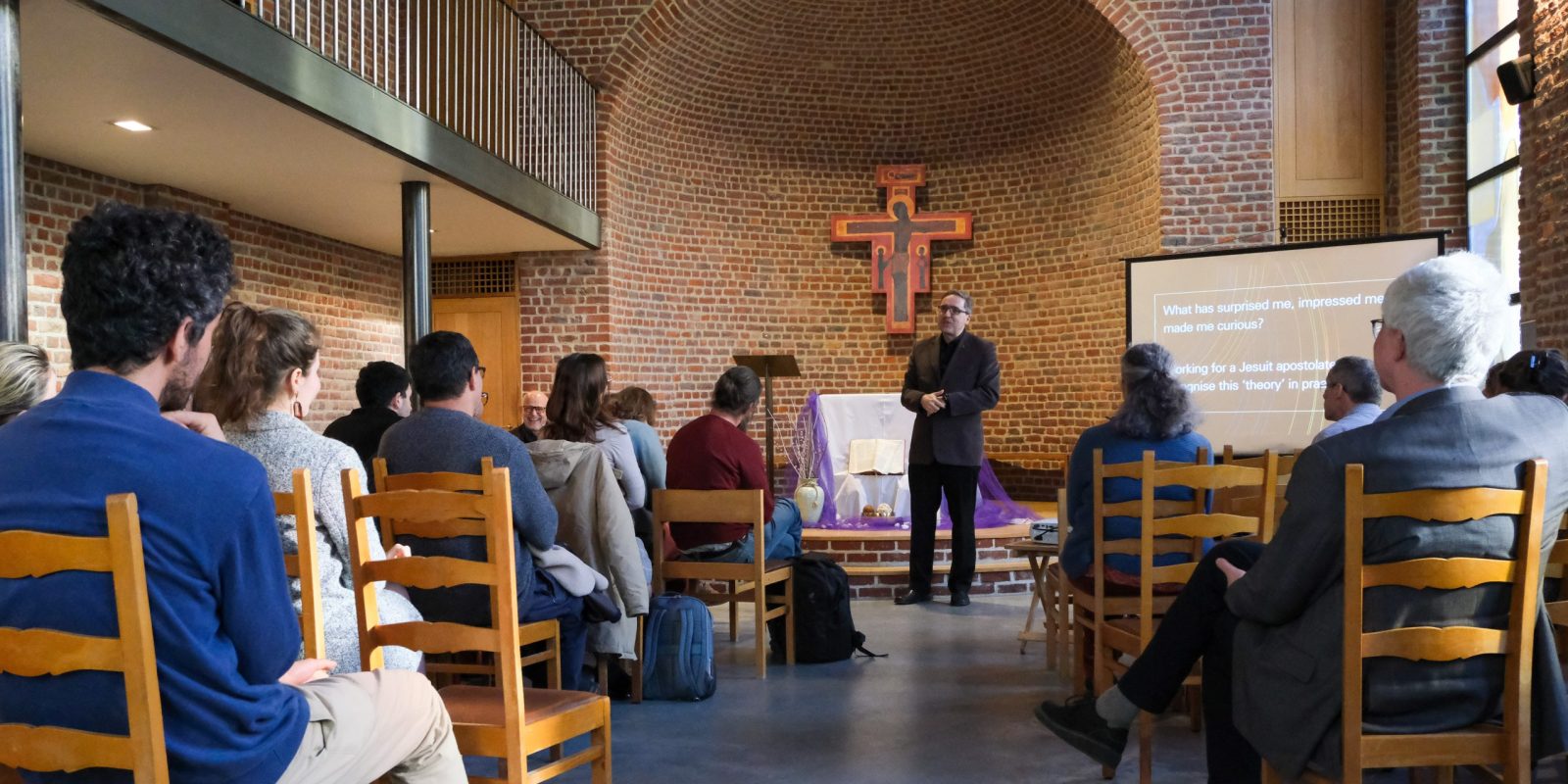RCM & AGM Sarajevo: Diversity, Hospitality and Accompaniment
16 April 2025|JRS Europe
JRS Europe brought together regional and country directors and staff for the Regional Coordination Meeting (RCM) and Annual General Meeting (AGM) in Sarajevo last week. Hosted by JRS Bosnia and Herzegovina, the meetings offered a vital space for reflection, learning, and strategic alignment as the network continues to respond to the evolving realities of people on the move in Europe.
RCM: Continuing walking towards the next strategic framework.
The RCM opened with a thoughtful overview of the Jesuit context in Europe by Dalibor Renic, SJ. Stanko Perica, SJ, then led a compelling session on migration trends in the Balkans and broader European context, prompting participants to reflect on their national realities and how these should shape a shared European strategic framework.
Throughout the two-day meeting, participants exchanged best practices and lessons learned from recent years, highlighting both the challenges faced and the innovations developed by country offices. A dedicated session on the One Proposal allowed the network to assess its impact three years after the war in Ukraine began and to explore how to further strengthen coordinated responses.
The final day of the RCM was focused on advancing in the drafting of the next strategic framework, which will come into effect in 2026. Sessions aimed at reflecting on the work done internally to develop it through a participatory process and discussing the key findings from the network’s feedback on topics like mission, identity, programme development priorities and capacity building.
AGM: exploring diversity and hospitality in the Balkans
The AGM, held immediately after the RCM, offered an opportunity to deepen the focus on local realities, starting with a warm welcome from the JRS teams in Bosnia and Herzegovina and Kosovo. Afterwards, Sarajevo Mufti Nedžad Grabus highlighted the spiritual and humanitarian importance of accompanying people on the move in the region, emphasizing not only the rich religious diversity in the region but the importance of interfaith dialogue and action.
The rest of the AGM featured participatory workshops tackling the unique challenges of Bosnia and Herzegovina’s role as a transit country, interfaith collaboration for social cohesion, and strengthening partnerships with state institutions. These sessions, led by colleagues from across the region, sparked dynamic conversations on how to better serve displaced communities while reinforcing JRS’s mission of hospitality and accompaniment.
Participants also visited key field sites, including the Temporary Reception Centre Ušivak and the JRS Reception Centre for unaccompanied minors, witnessing first-hand the work being done on the ground.
Accompaniment as a Collective Journey
The Sarajevo meetings concluded with personal and group reflections, drawing together the threads of faith, service, and strategic planning woven throughout the week. From strategic frameworks to interfaith dialogue, the gatherings reaffirmed the importance of walking together across countries, faiths, and disciplines in our mission to accompany, serve, and advocate for forcibly displaced people.


